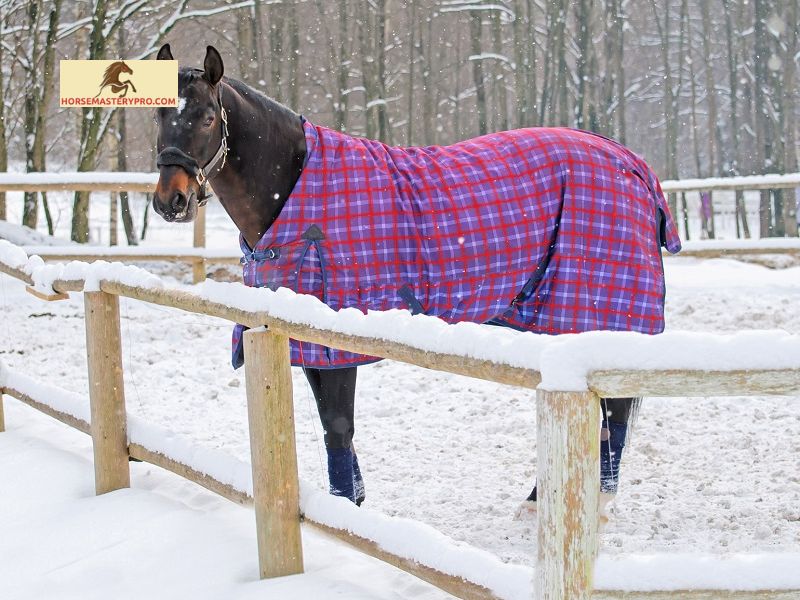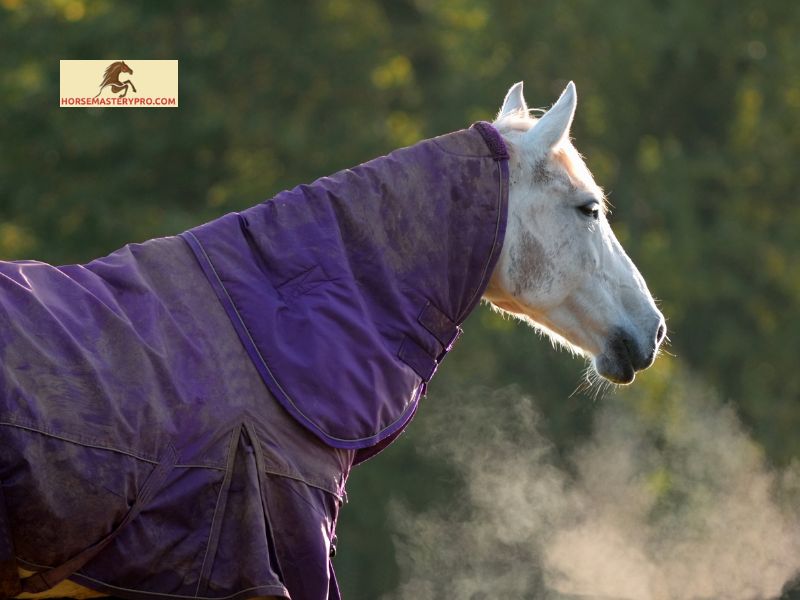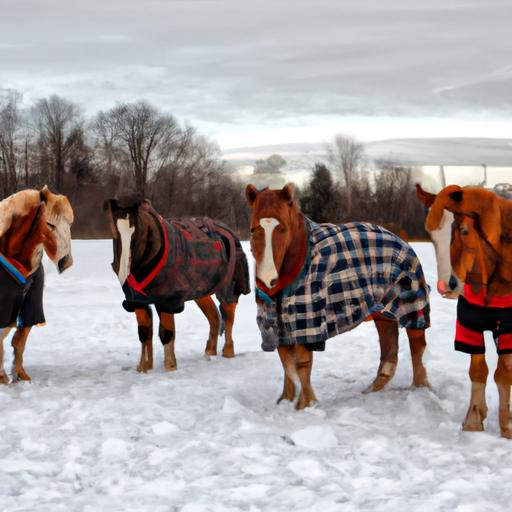Discover whether horses truly need blankets to stay warm. Explore scenarios where added warmth, protection, and extreme weather conditions may make blankets beneficial.
do horses need blankets? As horse owners, we constantly strive to provide the best care and comfort for our equine companions. One common question that arises during the chilly winter months is whether horses need blankets to stay warm. In this article, we will delve into this age-old debate and shed light on the factors to consider when deciding whether to blanket your horse.
Blanketing horses is a topic that sparks a range of opinions and practices among equestrians. Some argue that horses, being hardy animals, are perfectly equipped to withstand the cold without the aid of blankets. Others believe that blankets offer essential protection from the elements, especially in extreme weather conditions. So, where does the truth lie?
Understanding the natural adaptability of horses is key to unraveling this conundrum. Horses possess an incredible ability to regulate their body temperature, thanks to their thick winter coats. These magnificent creatures have evolved over centuries to withstand harsh climates. Their long, insulating hair traps air close to their bodies, creating a natural barrier against the cold. It’s like wearing a cozy, woolen sweater that keeps them snug and warm.
But before we reach a conclusion, let’s explore the various factors that come into play when considering whether to blanket your horse. Age, health, and body condition are vital aspects to assess. Older horses, foals, or those with compromised health may benefit from the additional warmth that blankets provide. Similarly, horses with a thin body condition may struggle to maintain their body temperature during colder months.
Stay tuned as we dive deeper into the discussion, examining the climate and weather patterns in your horse’s environment. We’ll also consider their access to shelter and natural windbreaks. After all, a horse with a cozy, well-insulated stable might have different needs compared to a horse exposed to the elements.
So, do horses truly need blankets? Let’s embark on this journey together and explore the nuances of this age-old debate. By the end of this article, you will have a better understanding of whether to embrace the winter wardrobe for your equine partner. So saddle up, and let’s find out!
Understanding Horses’ Natural Adaptability

A. Horses’ Remarkable Temperature Regulation
When it comes to staying warm, horses are masters of adaptation. These magnificent creatures possess an innate ability to regulate their body temperature efficiently. Unlike us humans, horses don’t rely on external sources like blankets to keep warm. Instead, they have evolved a remarkable internal thermostat system.
B. The Winter Coat: Nature’s Insulating Blanket
One of the key elements in a horse’s ability to brave the cold is their winter coat. The thick, long hair that covers their body acts as a natural insulating blanket. It traps warm air against their skin, providing an extra layer of protection against the biting chill. Think of it as a cozy shield that shields them from the elements.
C. Adapting to Mother Nature’s Whims
Horses have an extraordinary capacity to adapt to various weather conditions. Their bodies respond to fluctuations in temperature, enabling them to maintain a comfortable internal balance. In cold weather, their blood vessels constrict to reduce heat loss, preserving warmth at their core. On the contrary, in warmer temperatures, their blood vessels dilate, allowing heat to dissipate and prevent overheating.
Mother Nature has equipped horses with incredible resilience, allowing them to brave extreme climates. These majestic creatures have roamed the wild for centuries, navigating through snowstorms, chilling rains, and frigid winds. Their natural adaptability is a testament to their ability to withstand the elements.
As we continue this exploration, we’ll delve into the factors that might warrant the use of blankets for these hardy animals. While horses possess remarkable natural mechanisms to combat the cold, there are circumstances where additional protection may be necessary. Join me in the next section as we uncover the scenarios where blankets can be beneficial for our equine companions.
Factors to Consider in Blanketing Horses

When it comes to deciding whether to blanket your horse, there are several crucial factors to take into consideration. By carefully evaluating these aspects, you can make an informed decision that prioritizes your horse’s well-being and comfort.
A. Examining the horse’s age, health, and body condition
The age, health, and body condition of your horse play a significant role in determining their blanket needs. Older horses, foals, or those with certain health conditions may have a harder time regulating their body temperature efficiently. These equines may benefit from the added warmth and protection that a blanket offers. Conversely, horses in prime health with a robust body condition may not require blankets, as their natural insulation mechanisms are usually sufficient.
B. Identifying the climate and weather patterns in the horse’s environment
Understanding the climate and weather patterns in your horse’s environment is crucial in deciding whether to blanket them. If your horse resides in an area with extreme cold, harsh winds, or heavy rainfall, blankets can provide an extra layer of defense against the elements. On the other hand, if the climate is mild and your horse has access to natural windbreaks, such as trees or hills, they may not require blankets as frequently.
C. Discussing the horse’s access to shelter and natural windbreaks
Assessing your horse’s access to shelter is vital when determining their blanket needs. Horses that have access to well-insulated stables or barns can seek refuge from inclement weather conditions, reducing the necessity for blankets. Additionally, natural windbreaks, such as hedgerows or groves of trees, can offer protection from chilling winds, reducing the need for blankets in certain situations.
By evaluating these factors – age, health, body condition, climate, and access to shelter – you can make an informed decision regarding whether to blanket your horse. Remember, every horse is unique, and their individual needs may differ. It’s essential to consider these factors holistically to ensure your equine friend remains comfortable and cozy throughout the winter months.
Potential Risks and Drawbacks of Blanketing Horses

While blankets can provide warmth and protection for horses, it’s important to be aware of the potential risks and drawbacks associated with their use. Let’s explore some of these considerations to make an informed decision for your equine companion.
A. Addressing the potential negative impacts of prolonged blanket use
Blanketing horses for extended periods can have unintended consequences. One of the concerns is that horses become too reliant on blankets, leading to a decrease in their ability to naturally regulate their body temperature. Relying solely on blankets can hinder their natural adaptation to changing weather conditions, making them less resilient in the long run.
Additionally, prolonged blanket use can create a dependence on artificial warmth, causing the horse’s body to become less efficient at generating and retaining heat. This dependency may result in the horse feeling colder without a blanket, even in milder temperatures, and potentially compromising their thermoregulation abilities.
B. Discussing the importance of proper blanket fit and maintenance
When using blankets, it’s crucial to ensure they fit properly and are regularly maintained. Ill-fitting blankets can cause discomfort, restrict movement, or even lead to rub marks and sores on the horse’s sensitive skin. It’s essential to regularly assess the fit of the blanket, especially as the horse’s body condition changes throughout the season.
Maintaining the cleanliness of the blanket is equally important. A dirty or wet blanket can trap moisture against the horse’s skin, increasing the risk of skin infections or fungal growth. Regular cleaning and drying of the blanket will help prevent these issues and ensure the horse’s overall comfort and well-being.
C. Highlighting the potential for decreased natural coat growth and compromised thermoregulation
Blanketing horses can impact the natural growth and shedding of their coats. Horses have a seasonal coat cycle, where their winter coat grows thicker and longer to provide insulation during colder months. However, when continuously blanketed, the horse’s body may receive signals that it no longer needs to grow a thick winter coat. This can lead to a less robust natural coat, making them more vulnerable to temperature fluctuations.
Furthermore, constant blanket use can disrupt the horse’s ability to self-regulate their body temperature effectively. As they rely on external warmth, their internal thermoregulation mechanisms may become less efficient, potentially affecting their overall health and adaptability.
By considering these potential risks and drawbacks, you can make an informed decision about whether to blanket your horse and ensure their well-being throughout the winter months. Remember, finding the right balance is key, taking into account the individual needs and conditions of your horse.
Conclusion
After exploring the various aspects surrounding the question, “Do horses need blankets?” it becomes evident that there is no one-size-fits-all answer. Horses are remarkable creatures with the ability to adapt to different weather conditions, thanks to their natural mechanisms for regulating body temperature. However, there are instances where blankets can be beneficial and provide additional warmth and protection.
In scenarios where horses are clipped or have compromised coats, blankets play a vital role in preserving body heat and shielding them from the cold. Additionally, extreme weather conditions, such as blizzards or freezing rain, can pose significant risks to horses’ well-being, making blankets a crucial tool for their comfort and safety.
It’s important to remember that blanket usage should be based on individual horse needs and environmental factors. Age, health, body condition, climate, and access to shelter all play a part in determining whether your horse would benefit from wearing a blanket. Assessing these factors will help you make an informed decision that prioritizes your horse’s well-being.
As responsible horse owners, it is our duty to strike a balance between providing necessary protection and allowing horses to utilize their natural adaptations. Understanding your horse’s unique requirements and closely monitoring their behavior and comfort levels will guide you in making the right choice.
In conclusion, the question of whether horses need blankets is multifaceted, and the answer lies in the individual circumstances. By considering the factors discussed in this article, you can make an informed decision that ensures the well-being of your equine companion throughout the winter months.
For more expert insights and guidance on horse care, visit horsemasterypro.com. Our dedicated team of equestrian professionals is here to support you on your journey to becoming a knowledgeable and compassionate horse owner.
Remember, your horse’s comfort and welfare should always be the driving force behind any decision you make. Embrace the beauty of the winter season and enjoy the bond you share with your equine partner, whether they sport a cozy blanket or revel in their natural winter coat.


